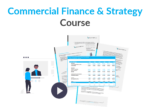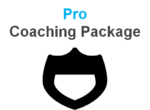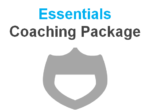
Audit Exit Opportunities – Case Study: How to move from Accounting & Audit to a tech start-up
We’ve previously talked about how we managed to break out of accounting & covered a few interesting and overlooked audit exit opportunities, but what about hearing directly from some of TheSwiftExit.com’s customers and where they’ve ended up?
This is a guest post from “Sandy,” who spent 4 years in Big 4 Audit / Assurance in California. She offers an insight into how she released herself from the shackles of Accounting & Audit to break into a tech startup and into a commercial & strategic role.
1) So Sandy, can you tell us some more about the company and the new role you’ve secured?
Sure! I’ve just accepted an offer (and negotiated my share options package) to work at a health tech startup in Silicon Valley.
The Company’s goal is to revolutionize the healthcare system by utilizing sensors, mobile, AI and data analytics to provide personalized and quality healthcare to those who need it most.
My role is Finance & Operations and sits within the Finance department, but interestingly it’s not a pure finance role. I’ll be very much involved in commercial strategy and business operations, whilst drawing upon the finance skills I’ve developed during my time in Audit.
I suppose the most direct comparison would be an FC (Financial Controller) or FP&A role, although at a start-up they are less committed to titles and ranks—it’s really an all team effort until they scale and need the structure, so I’m expecting to be super hands on and exposed to all areas of the business.
2) How did you find the job opening? What was your job search process?
I was lucky in that the job found me (I got a message directly from the CFO who asked if I would be interested in applying), but that was only because I had taken the time to build a strong network over the years.
Working in Big 4 audit has helped me have exposure to a variety of companies, industries and people who I’ve worked hard to maintain friendships with, which I’ve more recently been able to leverage to get my foot in the door.
Before I was contacted by the CFO, I was interested in a post-audit career where I could wear many hats and ideally work directly with senior leaderships in a high-growth company. Also, I didn’t think that this type of role, i.e. one that is so fluid, would exist in most larger companies, so I focused my job search efforts on start-ups.
In particularly, I checked out those that had raised a Series B/C-type of fundraising i.e. were at growth/scaling stage, and in particular where their product offering was social impact related – something I’m passionate about!
3) What hurdles/challenges did you face (or thought you faced) coming from Audit?
Like most of my peers, I thought that a career in Audit was so closely tied to “just” accounting and that my only realistic audit exit options were to look for an accounting position.
This was further reinforced by the multitude of LinkedIn messages from recruiters and advice from Partners/more senior people within the Big 4 who seemed to continuously say “accounting is the best direct exit from audit”. They even suggested that a pivot to finance or a different field was only possible as an internal transfer later on.
But I’ve proved that an exit beyond the world of accounting is possible, so long as we position ourselves well for it and do the research & prep work required (to your CV, for interviews etc).
Looking back, I never really knew what options were out there and available, and certainly didn’t have role models giving me truthful advice, so I definitely lacked direction early on in planning my exit. TheSwiftExit’s Accounting & Audit Exit Options guide was super helpful for learning how to research and plan my exit strategy.
[Co-Founder of TheSwiftExit.com here. We literally didn’t even ask her to say this ha! But we have included a link here because our guide is so. Damn. Amazing. And we think you’ll find it useful too!]
4) So now that you’ve proved moving into a strategic role is possible from Audit, how did your Audit background help you secure the job?
So it turns out that Audit is actually more directly applicable to most roles than any other kind of graduate job—it’s just a matter of mindset and how you tell your story.
When I told my audit clients I was leaving (some of whom were tech companies), all of them were like “Good for you! You’re smart enough to do well anywhere”. It made me think I could have moved even earlier – perhaps it was a confidence thing!
Basically, the Big 4 is a pyramid scheme and Audit gives you a lot of the skills you’ll need in strategic & commercial roles elsewhere, since you’re always asking questions, delving into the weeds as well as looking at the big picture, making decisions about what to focus on, doing flux analyses, etc.”
Ultimately, I think there’s a way to tell your story and have your Audit background sound very boring (“I tested controls and designed substantive procedures,” etc.) or other ways to tell your story and have different parts really stand out and support the narrative you’re trying to sell to your new employer.
5) Can you elaborate? How did you use your Audit experience specifically to help you stand out?
There are a lot of things about Audit that make you a stronger candidate than someone with a pure finance or accounting background. If you think about it, if you are a good auditor, you are likely always asking questions to challenge the status quo & previous approaches and are trying to constantly think of smarter/more efficient ways to accomplish what was done previously.
Additionally, due to the nature of client-serving work, you are constantly given too much work to complete in too little time and need to deliver with a smile.
Those are all pretty extenuating situations that train (mental) muscles that rarely get exercised elsewhere (or at least in industry in a pure Accounting role).
Unfortunately, I think Audit sometimes gets a bad rap due to the compliance-focused nature of the work and the stereotypical personalities that tend to gravitate toward that type of work (especially higher up the chain)… but if you think strongly about the transferrable skills that you’ve developed over time you’ll realize that most of them are quite relevant to success in other fields or roles!
Forget the boring stuff about “testing controls”, “procedures” and “SOX” this and that. It’s all about matching up your experience to the job specs you’re going for. Do the prep work!
6) What would be your main tips for your fellow peers trying to break out of Audit?
My main piece of advice would definitely be to stop and think really hard about what you want in your next job.
Most of my peers typically get inundated by messages from recruiters asking if they’ll entertain a call on “exciting opportunities in SOX!” (like seriously, does any recruiter really think that SOX is exciting?) and they’ll choose the next best thing which is usually a message about “consulting” or working in industry for a company that’s about to IPO, but in either revenue, financial reporting, or corporate accounting – pure accounting stuff.
Occasionally someone might leave for FP&A and the really adventurous ones might go into sales or even open their own restaurant or something completely different.
I wouldn’t call myself super adventurous (since otherwise I’d be here writing about my restaurant!), but I knew what I liked, what I disliked, what I’m good at, and what I want to become an expert at.
You need to think about all that stuff too.
7) How did you find out what you wanted?
I did extensive research, not only scouring blogs (such as here at TheSwiftExit) and Reddit, but also doing informational interviews with many friends that had careers or had done roles that sounded interesting to me.
I was careful to create an idea of not only the type of work that would interest me, but also what I wanted in a team, seniority/role, company size/maturity, culture, ambiguity/structure, and compensation. i.e. thinking about the long game, not just getting out of Audit as fast as possible to any opportunity that was thrown at me.
I think this part was pretty difficult for me because I am also someone who loves learning, so I typically have a “roll with the punches” attitude for most roles (which is probably why I was able to stick it out in Audit for so long…) but I knew that my number one requirement was that my next employer would need to have a strong social impact mission since I’ve found that to be critical to my happiness (long-term) and goals in life.
I honestly believe that because I took the time to figure out what I really wanted, it was then easier (and quicker) for me to reboot my resume and highlight skills on my LinkedIn profile to make me more attractive as a candidate for those types of roles.
While I am still in the corporate finance sphere of work, I’m happy here! I knew I wanted to be at a start-up where my role is fairly ambiguous and will require lots of jugging and fast learning—so that’s what I emphasized in my professional experience.
This is a guest post from “Sandy,” who spent 4 years in Big 4 Audit / Assurance in California. She offers an insight into how she released herself from the shackles of Accounting & Audit to break into a tech startup and into a commercial & strategic role.
Want to hear from more The Swift Exit customers? Find out how Joe moved from Accounting & Audit to Commercial Finance and Adam from Accounting & Audit to Consulting.
Exit Options | Mapping the post-accounting & audit landscape
A lot of the clients we coach ask about moving into more strategic & commercial roles after spending time in traditional accounting & audit, but don’t know where to start or even what opportunities exist …so-much-so that we’ve put together a map of the landscape of accounting exit opportunities, which I encourage you to check out!
Want to land (and master) more strategic and commercial roles?
Learn how to upskill beyond your technical accounting & audit background in the first (and only) online course built specifically for accountants. Through interactive modules, case studies, and real-world applications, you’ll learn how to confidently build financial models, assess business opportunities, and everything else needed to contribute meaningfully to strategic decision-making. Build hard commercial skills to future-proof your skill set and prove you can translate your accounting background into a commercial context with the Commercial Finance & Strategy – Principles and Execution online course.
Spice up your CV/Resume for the post-accounting & audit world
We’ve created a digital guide specifically to help those of you applying for more commercial & strategic roles. Our straight-talking CV/Resume advice for Accountants/Auditors is the only guide that is highly-specific to the traditional accounting & audit background: we give you real-life good & bad examples for showcasing your experience for strategic roles, the best structure & content to win over recruiters, a strategy for distributing your CV/Resume, interview advice, and more!
Want personalised advice from one of our Co-Founders?
We’ve been where you are and can help you forge your swift exit. Click here to Get Coached.











